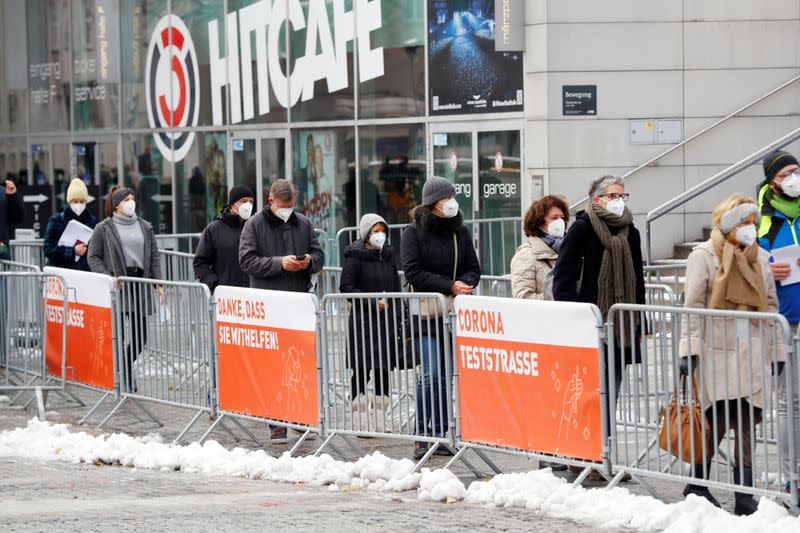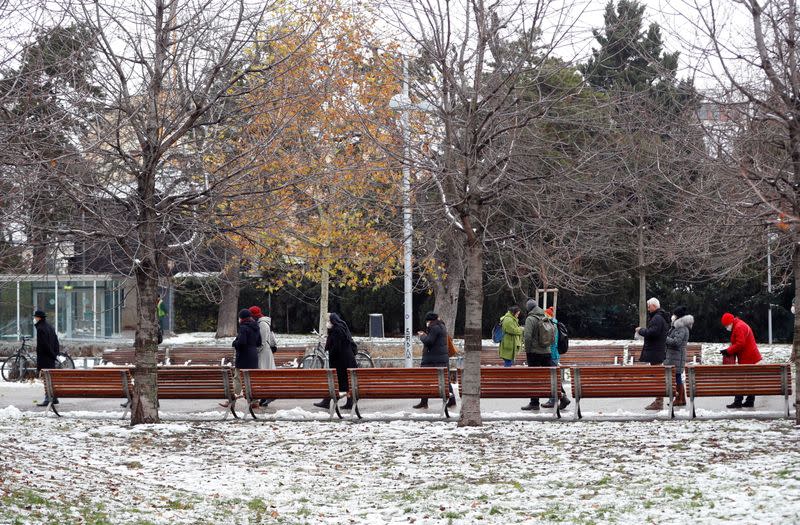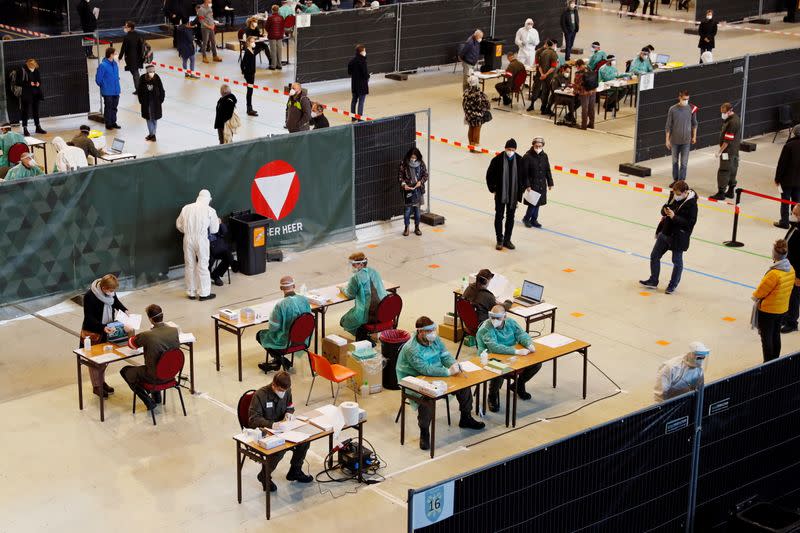Austria starts mass coronavirus tests in run-up to Christmas
VIENNA (Reuters) - Three of Austria's nine provinces on Friday kicked off a national effort to test as much of the population as possible before Christmas, to limit infections when families meet.
Apparently inspired by a similar but more coercive effort in neighboring Slovakia, conservative Chancellor Sebastian Kurz announced the voluntary "mass testing" plan three weeks ago.
With help from the armed forces, extra testing centres have been set up with the aim of finding undetected cases before generations mix over the holidays. Vienna and the western, Alpine provinces of Tyrol and Vorarlberg began their additional testing on Friday.
"You get an appointment, you have to stand in line for a bit. It looks like there's an awful lot of people and you'll have to wait for hours but the whole thing is over in just under 45 minutes, including the result," said Sven Hartberger, 62, emerging from the Stadthalle, a large concert hall in Vienna.
"I can only say hats off. Very well organised. It's simply impressive that something like this can be created from scratch," he added.
Austria brought its first wave of infections under control quickly with a national lockdown from mid-March to mid-April, but it only introduced a second lockdown on Nov. 17 after daily infections rose to nine times the first wave's peak. They have now halved and the country will allow shops to reopen on Monday.
When Kurz announced the testing push he had not informed all of Austria's provinces, even though they are primarily responsible for health issues. The hastily set up online registration system has had problems, from appointment details being sent to the wrong person to the website being offline.
"I found the registration rather bad because the servers were rather problematic. It took a rather long time to load, but then luckily it worked," Markus Schneidebauer, a 31-year-old teacher, said. "Actually today it went very well."
(Reporting by Matteo Witt and Francois Murphy; Editing by Richard Chang)






